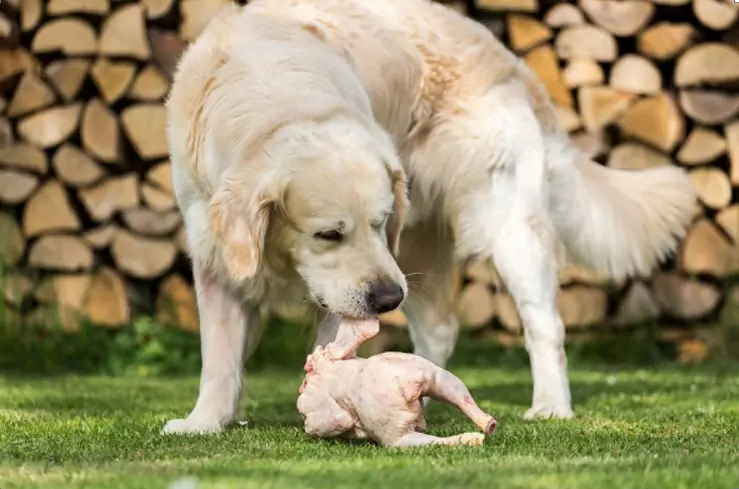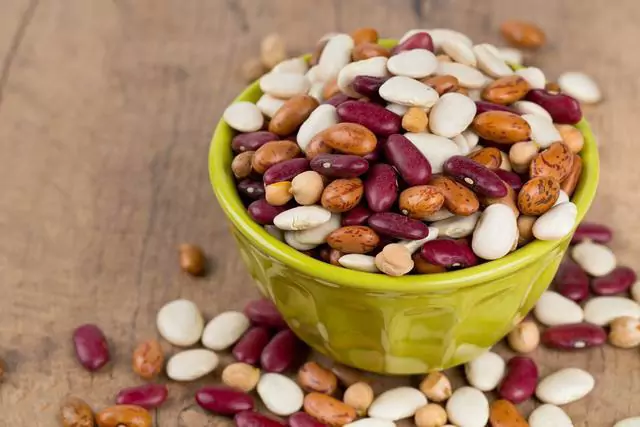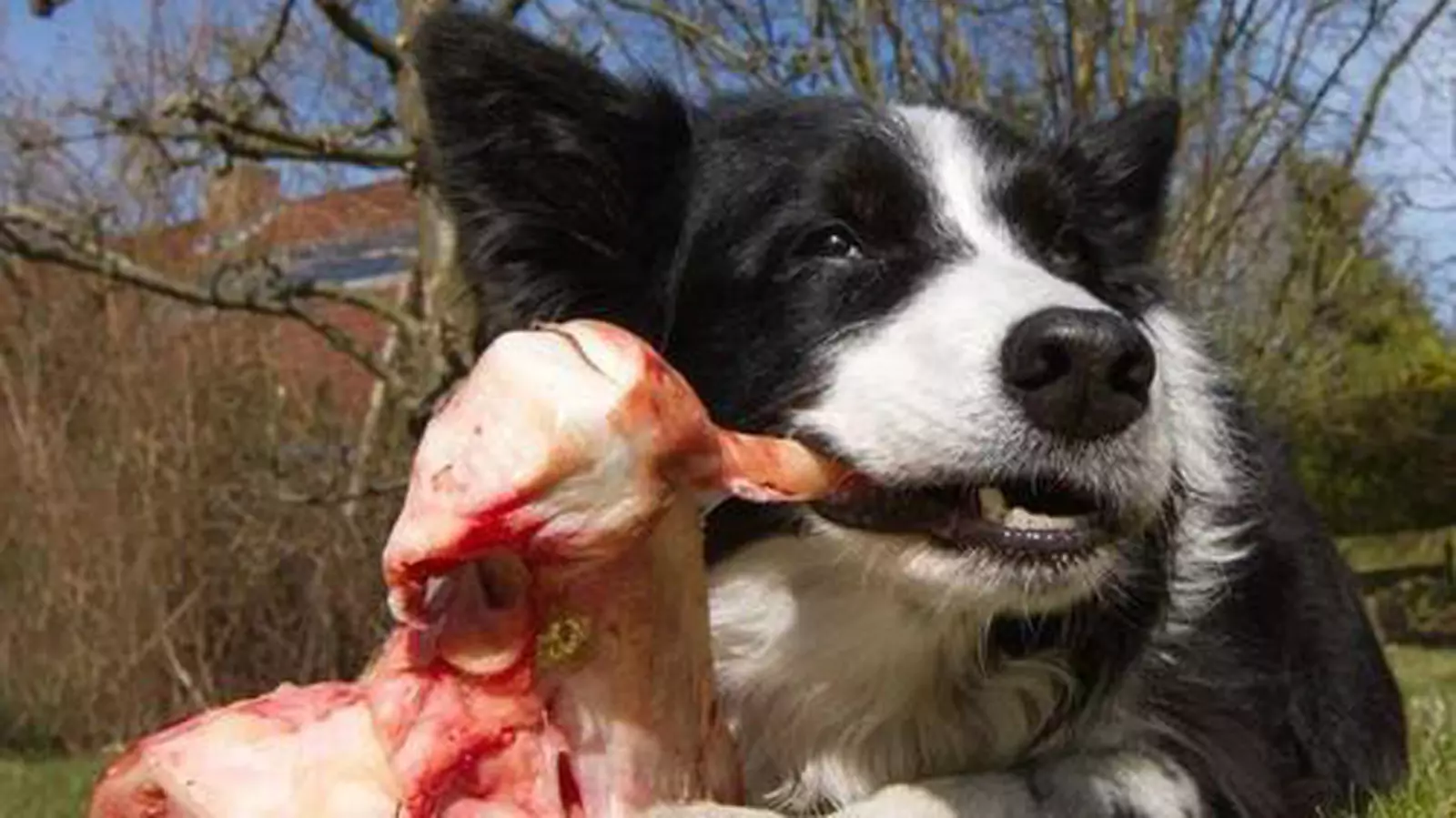Can dogs eat turkey? The benefits of turkey for dogs
2022-06-22
I. The benefits of turkey for dogs
Turkey is a lump of lean, low-fat meat that is most often consumed during Thanksgiving dinner but is also the most popular turkey and lunch sandwich meat. This meat is rich in essential vitamins and minerals but contains far fewer calories and fat than other traditional meats. But can dogs eat as much turkey meat as possible, or is turkey bad for dogs?
What is turkey? Turkey is mostly white meat that is leaner than red meat and is typically associated with and often consumed during the Thanksgiving holiday. Many people turn to turkey not only for its low fat and low-calorie content but also because it is high in minerals and vitamins, many of which help provide lean protein as well as potentially prevent diseases such as diabetes and cancer. It is important to note that only the white meat portion of turkey is lean and low in calories. Any turkey meat, including dark meat, is as high in fat and calories as any other kind of dark meat. But dogs can eat turkey, and which type is good for them? Is turkey bad for dogs in certain situations? When should it be avoided?
So can dogs eat turkey meat? Your dog can eat turkey because the meat itself is non-toxic and nutritious. However, the only turkey given to dogs should be cooked or in proper raw form without any additives such as sodium or preservatives. Care must be taken in feeding turkey to dogs. Often store-bought turkeys may be combined with other foods or spices that are toxic to dogs, so any turkey fed to dogs must be thoroughly cooked and leveled. Otherwise, serious health problems may occur. White turkey meat is one of the healthiest meat choices, with a very high ratio of protein to carbohydrates to fat.
1. White turkey meat has a high lean protein content
Protein is necessary for a variety of important bodily functions, and white turkey meat provides plenty of them. Protein is required for all development and growth components in the dog's life cycle. Protein is burned as a calorie and can also be converted and stored as a fat molecule. It is also an important player in the development and health of the immune system.
2. Turkey contains most of the riboflavin.
Riboflavin, also known as vitamin B2, is part of a series of vitamin B complexes. Vitamin B2 is a water-soluble vitamin that, along with vitamins B1 and B3, plays a major role in the production of cellular energy. Sufficient riboflavin needs to be in the dog's diet to prevent bladder stone formation.
3. Phosphorus in turkey contributes to a variety of key body functions in dogs.
Phosphorus promotes normal function and regulated metabolism and plays an important role in membrane integrity. In combination with calcium, phosphorus helps form strong bone structures such as teeth, and turkey provides a significant amount of this mineral, making it beneficial to a dog's health.
4. White turkey meat is a moderate source of omega-3 fatty acids.
Dogs need omega-3 fatty acids in order for certain healthy body processes to occur. As functional fats that dogs cannot produce on their own, omega-3 fatty acids help control allergies and sensitivities in the immune system, enhance vision, and regulate blood clotting in the body. omega-3 fatty acids also help prevent or control diseases and disorders such as cancer, cardiovascular disease, cognitive function, and osteoarthritis. While you can get the most benefit from feeding fish oil supplements, natural meats like turkey may be a better choice.
5. Turkey provides selenium, a mineral used for a sharp mind and a healthy body.
Selenium is an essential mineral in a dog's diet. It helps build and ensure a strong, stable immune system that contributes to the overall health of the dog. This mineral also enhances cognitive function, helps dogs stay sharp, and fights the early aging process. Selenium also benefits the dog's DNA synthesis, and thyroid hormone metabolism and prevents oxidative damage, which often leads to the development of cancer.
Whether it's baked, braised, or fried, chicken is always with you guys.
We know you all want the best for us furkids. So palatable, nutritious chicken and products have become the entry-level food of choice for many white pooper scoopers.
The comprehensive nutrition and anti-allergy turkey, you are sure not to give the cats and dogs to try?
But you may not know, in your happy to eat chicken, we are happy to eat chicken, a lot of fur kids little friend is suffering from allergies. Because chicken and beef are recognized as the most likely to cause us these hairy children allergic to animal protein meat source oh.
Some pooper scoopers spend a lot of money and time to treat our allergies after they are discovered. You suffer, we suffer. But few people think that the root of the problem is the chicken component of the food we eat regularly!

Two: Are you sure you don't want to give your dog or cat a taste of this nutritious and allergy-friendly turkey?
The face of turkey is also still very high
1, turkey protein is not only nutritionally balanced, but the risk of allergy is almost zero.
Turkey, like chicken, is a slice of white meat. A lot of research has confirmed that in terms of nutrition, whether for you two-legged beasts or us hairy kids, turkey and chicken are completely interchangeable.
Not only is turkey rich in easily digestible animal protein, but it is also not far behind the familiar chicken in terms of vitamin and mineral content.
Many nutritionists and fitness trainers suggest that if you two-legged beasts want to work out, but are tired of eating chicken every day, turkey meat is the perfect substitute.
Are you sure you don't want to give your dog or cat a taste of this nutritious and allergy-friendly turkey?
Turkey dinner is a traditional Western Thanksgiving meal
But compared to the high allergy risk of chicken, turkey for us fur kids can be considered the "small fresh" in poultry. It can be a complete substitute for chicken nutrition, while also acting as a protector of allergic pets. Two birds with one stone, we can't wait to try it.
And now the value of turkey in the pet food industry is increasingly recognized by nutritionists and veterinarians, becoming the industry trend - the preferred animal protein for functional dry food. You've all started eating "turkey noodles", so we thought we'd try turkey, the popular "fried chicken"!
Are you sure you don't want to give your cats and dogs a taste of this nutritious and allergy-proof turkey?
We want a turkey dinner!
Therefore, if our little ones are allergic to red meat such as chicken or beef, or lamb; or are already being treated for related allergies, we suggest switching our daily diet to turkey. Avoid or slow down the allergy symptoms from the food side. You suffer less, we suffer less!
2. If the turkey is so good, why is it rare to see turkey ingredients in the whole of China, including domestic pet food?
A the taste of turkey meat is not as good as chicken meat
In this soul posting, we really want to ask the reason behind your two-legged beast. As a big food country's pooper scoopers, why rarely eat turkey?
Because: turkey meat is too "wood"!
Compared to the tenderness of the chicken, the fat content of turkey meat is a little lower than chicken. And muscle fibers to thicker than ordinary chicken. Especially the turkey breast position, all lean meat, but the texture is soft. Someone once ate it and felt no different from eating cotton.
Comprehensive nutrition and anti-allergy turkey, you are sure not to give cats and dogs to try?
Fresh turkey meat is also thicker than the chicken fiber of ordinary chicken meat
B, turkey rearing costs and benefits are lower compared to ordinary chicken
Even in the United States and Mexico, where turkeys are more prevalent, the cost of raising turkeys and the revenue they produce is lower than that of ordinary chicken.
For example, we are familiar with eggs, each chicken will basically lay eggs every day when it reaches a certain age. But in the case of turkeys, the timing and frequency of egg production are lower than that of ordinary chickens.
This, coupled with the low acceptance of turkey eggs by the general public, has resulted in many turkey breeders not being able to get the same revenue from eggs in this area, so the cost of thinking right is high!
Are you sure you don't want to give your cats and dogs a taste of this nutritious and allergy-proof turkey?
Guess which one is a turkey egg?
C, the audience of "two-legged beasts" is relatively small, most of the world does not have the tradition and culture of eating turkey meat.
Originally from Mexico, turkeys were introduced to North America and Europe and became one of the more common poultry in these regions. But even in these regions, the audience for turkey is still much smaller than for common poultry, such as chickens and ducks. Often, it appears as a cultural symbol on the dinner table at Thanksgiving time.
For other regions and countries of the world, turkey is even a new species. For example, in China, the basic mountain can not find large turkey breeding grounds. Because the Chinese two-legged beast used a flood of power and also can not make turkey into a delicious, divided ordinary chicken gourmet Jingshan, slowly turkey is not popular on the Chinese dinner table.
Are you sure you don't want to give your cats and dogs a taste of turkey, which is nutritious and allergy-friendly?
Turkey is the most important food for Thanksgiving
3, the principle of choosing pet food with turkey ingredients
Although it seems unlikely that you two-legged beasts want to try turkey food on a large scale. But for us fur kids, we are very welcome to try turkey and pet food containing turkey ingredients.
But when choosing related products, there are some tips.
1. What kind of turkey meat source is important
The overall view is free-range turkey meat > cage turkey meat > boneless, frozen and other secondary processing turkey meat > turkey meat powder > turkey by-products and animal meat powder.
2, hypoallergenic, but not as a medicine.
Although turkey is a high-quality animal protein with basically 0 allergenic risks, if the hairy child itself is already allergic, even if it has changed to turkey products, it cannot give up the medical treatment. Changing the diet to turkey food is only a side complementary therapeutic and soothing function and does not have a pharmacological effect.
Was this article helpful to you?
Other links in this article
português (Brasil):
Os cães podem comer peru? Os benefícios do peru para os cães
中文简体:
狗能吃火鸡吗?火鸡对狗狗的好处
中文繁体:
狗能吃火雞嗎?火雞對狗狗的好處
Comments

Is a dog's mouth cleaner than a human's? Dogs' mouths need regular cleaning

Can dogs eat beans? Do dogs eat beans for health?

Can dogs eat lemons? Fruits that dogs should not eat more of

Do dogs have nightmares? Are dogs' dreams similar to humans'?

Can dogs eat raw beef? The benefits and drawbacks of beef for dogs

Is raw meat good for dogs? Can dogs eat raw chicken?

Can dogs eat pomegranates?

Can dogs eat ham?Can all types of ham hocks be eaten?

How to give a dog a bath

Can dogs eat kimchi?








